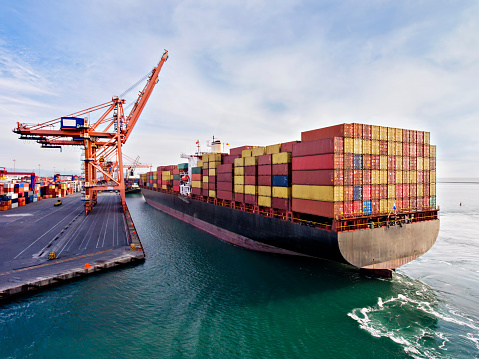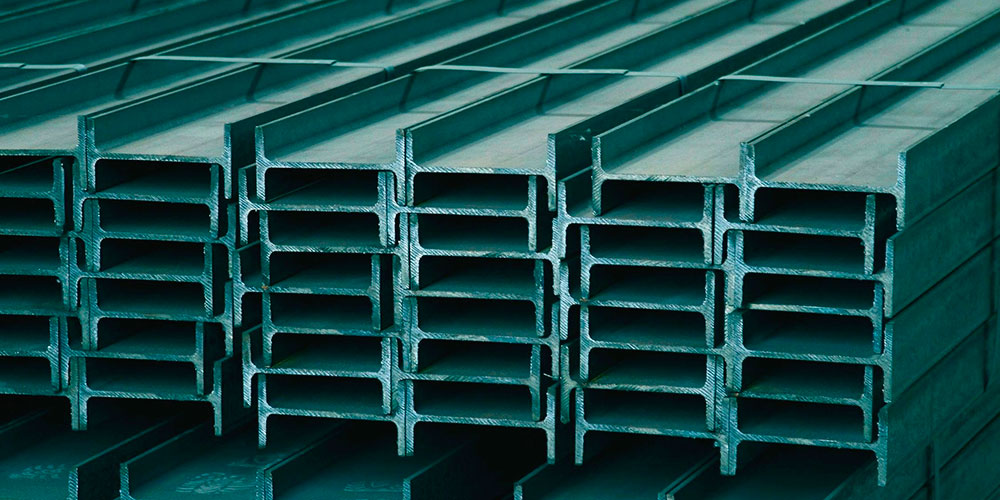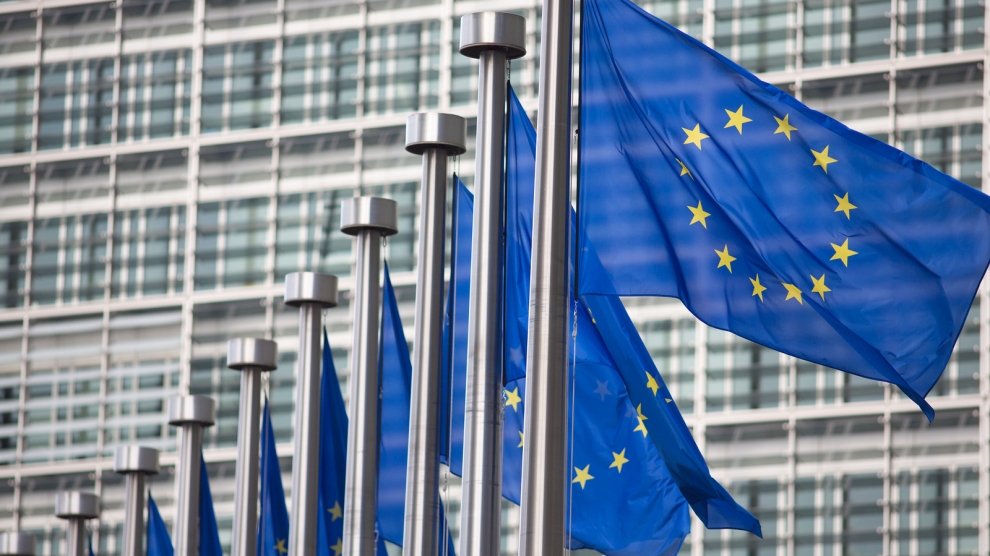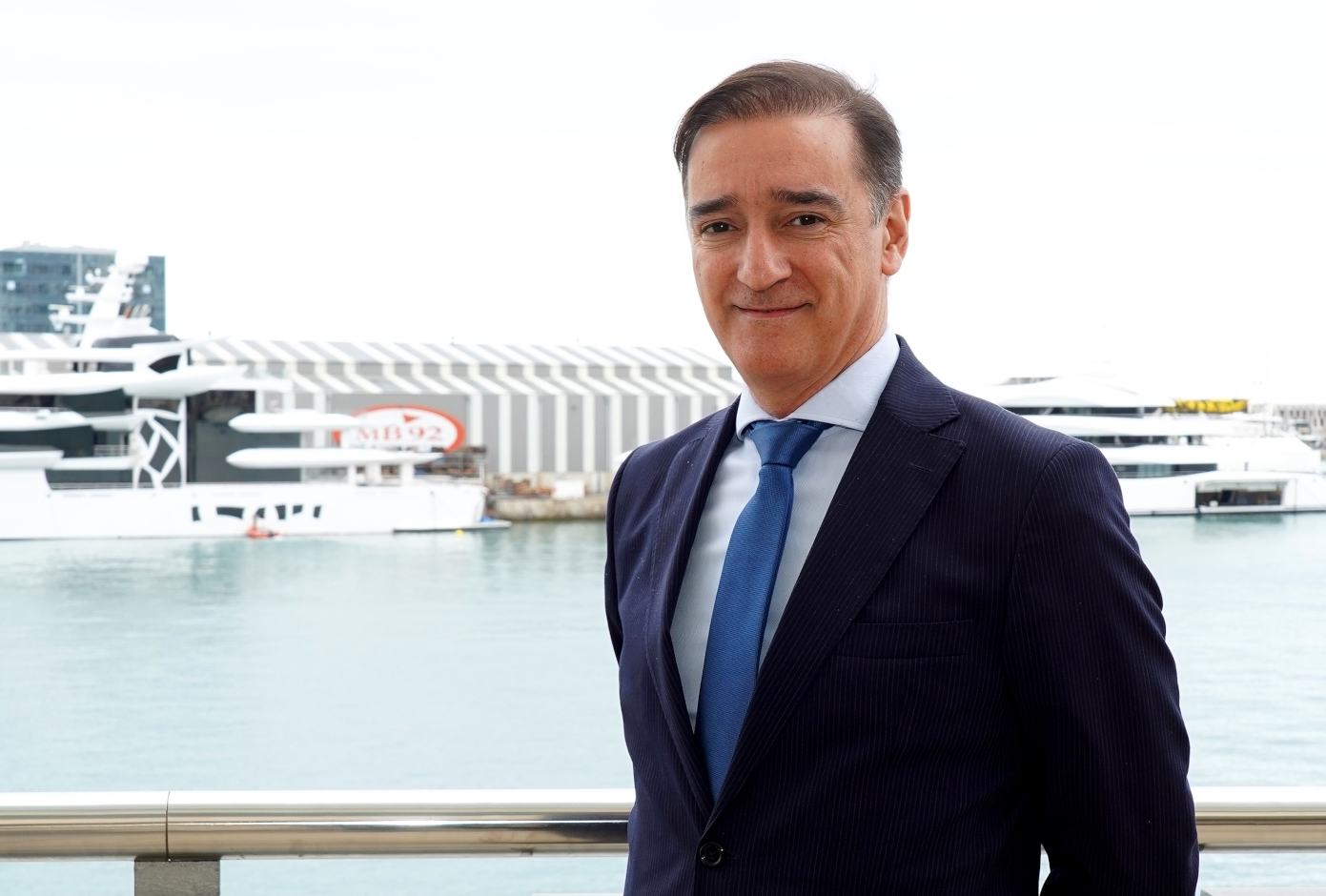
Logistics blight US market, sanctions create opportunities: Irepas
Steel market regionalisation started with the Trump era in the US and was followed by the imposition of EU quotas, but the US will not consider a ban on scrap exports, says International Rebar Exporters and Producers Association (Irepas) traders’ committee chairman F. D. Baysal.
“Later, this movement [protectionism] continued in a new dimension with Covid when producers realised that they should have inventories ready because of possible unforeseen interruptions, and also the supply chain issues which started with the pandemic escalated with ports being congested and many products arriving at the same time,” Baysal said at last week’s Irepas meeting in Istanbul attended by Kallanish.
“Higher freight rates and congestion, especially in the US, are a significant factor of higher steel prices. It takes almost a month to bring unloaded arrived goods waiting in the port to the buyer’s warehouse,” Baysal continued. “The shortage of truck drivers is a serious issue in the US. It may take six months to a year and freight rates really have to ease. Container prices have doubled, even quadrupled which is not sustainable.”
“Container lines deliberately pulled old containers out of circulation, causing shortages. However, the situation will change soon. There will also be more ships being built and that will change the whole equation, but it will take time, so higher prices are here to stay,” Baysal added.
Regarding the war in Ukraine, Baysal commented: “In the first two months of the war, manufacturers depending on Russian and Ukrainian supplies for their production procured in panic, which elevated steel prices, but after Russian steel products, particularly billet, started to reach markets that do not recognise the sanctions, the rise in prices stopped and a decline began.”
Payments for Russian steel are facilitated through intermediary countries like Switzerland and Dubai, Baysal claimed. Unevenly applied sanctions create certain advantages for those countries that do not recognise the measures, he added.
“I don’t think there is an absolute winner [from the war situation], but countries that don’t recognise the sanctions have the upper hand, though for a short time,” Baysal concluded.
Burak Odabasi Turkey


Infosteel magazine n°69 est publié
Dans ce nouveau magazine, vous découvrirez non seulement des réalisations en acier, mais vous trouverez également plus d’infos sur la première version du nouveau RPC (Le Règlement Produit de Construction), plus d’informations sur notre Concours Construction Acier 2022 et le nouveaux livre ‘Composite Structures’ (Construction mixte acier-béton).
Vous préférez lire notre magazine en ligne ? Alors cliquez ici.


Revista InfoAcero Mayo 2022
En este enlace pueden acceder a la edición de Mayo de nuestra revista
A continuación destacamos algunos de sus contenidos:
- Opinión – D. Fernando Moraga – Vicepresidente UAHE.
- Evolución del Índice de Precios de Productos Siderúrgicos – UAHE
- Sector Siderúrgico: Previsión sectores consumidores de acero, consumo real y aparente de acero – Eurofer.
- Próximos Eventos: 31 Bienal Máquina Herramienta, Bilbao 13-17 Junio


EUROMETAL at Kallanish Europe Steel Markets 2022
Fernando Espada represented EUROMETAL as a speaker at the Europe Steel Markets 2022 Conference organized by Kallanish Commodities the 30 & 31 May in Milano.
To kick off Europe Steel Markets 2022, our president, accompanied by Andrii Tarasenko
Chief Analyst at GMK Center and Roberto Re, Head of Metinvest Europe gave their view on the latest market developments and their outlook for the second half of 2022.
The session “European steel – debating the big issues” was moderated by Emanuele Norsa
Editor Southern Europe at Kallanish who remembered the extraordinary year with prices reaching new record levels and profitability for steelmakers, demand recovery and critical factors in the supply chain. Without forgetting the invasion of Ukraine, where global markets have had to reorganise supply on the back of sanctions on Russia and the stoppage of Ukraine production.
This hybrid event had more than 150 participants present in Milan and watching online.







European Commission to introduce global safeguard quotas on some steel products
The European Commission plans to introduce global quotas for some products and prolong steel safeguard measures to 2024, it said in a document sent to the World Trade Organization on May 30.
The Commission also updated the list of developing countries and added Vietnam to the other countries quotas, according to the document seen by S&P Global Commodity Insights.
The proposed measures would come into effect July 1 following the traditional yearly safeguard review cycle.
For product categories 7, which includes quarto plates, and 17 — including angles, shapes and sections, the EC has proposed to substitute country-specific quotas with global quotas. The main reason behind the decision was that Ukraine had historically represented around 33% of total volumes imports in each category. After Russia’s attack on Ukraine, however, export of those products to the EU stopped.
On May 24, the EU adopted a regulation allowing for temporary trade liberalization for some Ukrainian products in the wake of the ongoing war, which has halted the application of the steel safeguard measure for the time being.
As Ukrainian producers are unable to produce or ship the two product categories now, the EU authorities decided that this could result in shortage of the products.
The EC has considered setting the yearly level of liberalization of import quotas at 4%, up from 3% a year before and this would also come into effect from July 1.
The same global quota will apply on product category 8 — stainless hot-rolled flat steel and category 25A — large welded tubes.
Among other changes, hot-dipped galvanized steel imports (categories 4A and 4B) from Vietnam would be added to the global quotas list, in line with the updated list of developing countries.
— Maria Tanatar


EU to make limited changes to safeguard system
The European Commission has notified the WTO of the result of its latest review of the EU safeguard system. Some limited changes to the system will be implemented effective 1 July, Kallanish learns from an official release.
The biggest change relates to the liberalisation rate of tariff-rate quotas (TRQs). As of July, these will increase by 4%, against a previous liberalisation rate set at 3%. “The Commission considered that, at this point in time (after four years of measure), a slightly higher level of liberalisation year-on-year should be envisaged in order to encourage the domestic industry to continue its adjustments, while being mindful not to undermine the effectiveness of the measure,” the note says.
Additionally, the Commission has taken the decision to cancel country-specific quotas for both heavy plate and angles, shapes and sections. As a result, these sub-categories will only have one quota available, for all countries.
“In these two product categories, Ukraine has historically been an important exporter (representing around 33% of total quotas in each of these categories) and it has consistently used its quotas at rather high levels. However, the Commission observed that since the military aggression of Russia against Ukraine, there have been virtually no imports of these two categories from Ukraine into the Union. This suggests that Ukraine is currently unable to produce and/or export these products in any meaningful volumes to the Union market,” the Commission explains.
“Under these circumstances, and having analysed the quota use by other exporting countries subject to the measure, the Commission considered that there would be a risk of potential shortage of supply for Union users in these categories if it did not take any action,” the note adds.
During the review, the Commission also looked into the list of developing countries exempted from the measures. The list of such countries has been updated. The most important change will be the inclusion of countries such as Vietnam in a number of TRQs for products including HDG (see separate story).
Finally, some changes will also be implemented to the utilisation of residual quotas during the last quarter of the year, Kallanish notes.
“In addition, the European Union also assessed whether any of the changes to the US Section 232 measure had any effect to the EU safeguard measure requiring an adjustment. The European Union concluded that the changes to the US Section 232 measure did not justify any adjustment to the EU Safeguard measure. Therefore, because no adjustments are proposed in this respect, the detailed reasoning on this section will be included in the legal act that is currently subject to EU’s internal decision-making and which will be published before 1 July 2022,” the note concludes.
Emanuele Norsa Italy


Buyers want green steel, Chinese exports fade: Fernando Espada
Global CO2 reduction policies are here to stay and demand for “greener” steel will significantly increase in the coming years, EUROMETAL president and Layde Steel managing director Fernando Espada said at Monday’s Kallanish Europe Steel Markets 2022 conference in Milan.
The impact of CO2 regulations on steel is causing a permanent change, affecting electricity prices because of emission rights and the cost of electric arc furnace steelmaking. Increasingly more customers are asking for low-carbon steel products and are ready to pay a premium, as well as accept the longer lead times.
“At the end of the day … if you, as a consumer, want the material to be CO2 neutral, you will have to pay more because the entire supply chain needs to accept the change. We are seeing this already with electric cars,” Espada explained.
On the current changing price trends and demand slowdown in Europe, he said the price increases seen since mid-2021 originate from China’s decision to abolish tax rebates on steel exports. Such a move has reduced exports from China to the rest of the world by 20%.
“What we are seeing today is a realignment in the market. We will have to reallocate production because China is not going to flood it [the global market] anymore and that is really the fact that explains, in my opinion, what is happening with prices in Europe,” Espada observed.
China is to embark on Xi Jinping’s prosperity programme, a middle-class growth plan. The country does not intend to emit carbon for the sake of producing low-value products for export. “If China continues with an added-value policy, wealth sharing, oligarchic control, and middle-class growth, if it leaves behind its role of cheap producer for the rest of the world, the balance in many different markets will be broken, not only in steel,” Espada opined.
If China continues to export less, new capacities will have to be built in Europe according to the needs of each country. This however will take time as Europe is now threatened by a high inflation rate that may launch a stagflation cycle, Espada concluded.
Natalia Capra France


180 participants at EUROMETAL Steel Net Forum Iberia in Barcelona
EUROMETAL Steel Net Forum Iberia in Barcelona was attended by 180 participants. Undoubtedly another successful proof of close collaboration with the Spanish national federation UAHE.
Delegates from all the steel value chain, gathered in Barcelona to learn matters such as safeguard measures in steel trade, cybersecurity, the impact of the Russian-Ukraine conflict on the European distribution, the implications of CBAM and the challenges facing the distribution of steel in Iberia.
It was announced at the end of the event the intention to organise the next Iberian forum in Algarve (Portugal) in March 2023.
Here are the articles published by the journalists present:
- With embedded CO2, steel scrap vital for green steel production: EUROMETAL’s Espada
- Ukraine war makes EU safeguard removal possible: Yuriy Rudyuk
- Iberian distributors expect challenging 2022: conference
- Demand for low carbon emission steel increasing: SSAB
- EU safeguards detaching fast from reality of steel trading: Van Bael & Bellis
- Spain’s steel sector remains cautious over market recovery

Ukraine war makes EU safeguard removal possible: Yuriy Rudyuk
The full repercussions of steel trade redirection following Russia’s invasion of Ukraine remain unknown, with the absence of supply from either country causing intense uncertainty for European steel producers and traders, says Yuriy Rudyuk, an expert in international commercial law and anti-dumping and safeguard matters at law firm Van Bael & Bellis. The main question is over which of the existing EU trade barriers will be confirmed or extended.
At this week’s EUROMETAL Iberia Steel Net Forum in Barcelona attended by Kallanish, Rudyuk said: “Significant volumes of hot-rolled products, exceeding 1.6 million tonnes of Russian-origin steel, were redistributed among countries such as Turkey, India, Korea, the UK and Serbia, while some 300,000t of Russian wire rod and more than 260,000t of Belarus-origin steel was redistributed among such countries as Switzerland, Ukraine, the UK, Turkey and Moldova. This is a major correction of import flows in the EU.”
Rudyuk predicts the EU will soon suspend all tariffs on Ukrainian goods initially for one year, including steel safeguards and anti-dumping duties on hot rolled coil and certain seamless pipe and tube.
The expert pointed out that EU safeguard measures are now increasingly detached from the current business reality of trading in steel. “We are seeing an increase of anti-dumping measures, dramatic disruption or complete halt of supplies from Belarus, Russia and Ukraine in various steel product categories, while other steel supplying countries cannot easily substitute these lost volumes because safeguard measures now work as a major trade barrier for such replacement. As a result, a major change of the application of the safeguard measures would be required,” he explained.
The European Commission is considering three options to ease the situation. The first one, according to Rudyuk, is a major softening of the measures by replacing country-specific tariff-rate quotas with global quotas for certain categories, or increasing the liberalisation rate for all products.
Another measure could be to allow new trade flows to form under the safeguard framework, although this is “difficult in practice as this has to be done in a non-discriminatory manner”.
A further option is to keep the measures without major changes, but only for a relatively short period, while the last possibility is to repeal the measures altogether. “Possibly, for the first time in all previous reviews, we come so close to a repeal in terms of arguments and the economic business reality,” Rudyuk observed.
Todor Kirkov Bulgaria


With embedded CO2, steel scrap vital for green steel production: EUROMETAL’s Espada
Already embedded with CO2, ferrous scrap is the “new gold” key for the production of green steel, EUROMETAL President Fernando Espada has told S&P Global Commodity Insights.
Such scrap is “vital for the production via the electric arc furnace route for steel,” Espada said May 24 on the sidelines of the EUROMETAL conference in Barcelona. “We will need more and more scrap, but at one point, as demand is growing amid the European Commission’s target to become CO2 neutral by 2050, we will see less scrap in the market — that’s why a lot of countries are pushing to keep the scrap inside their own borders,” he explained.
The importance of scrap towards lower carbon emissions was echoed by CRU Group European Flat Steel Analyst Matthew Watkins, who told the conference there would be less good quality scrap available in the future for which demand would still be high due to blast furnace/basic oxygen furnace-intensive Chinese production. However, he said overall EAF output is forecast to rise in the coming years.

Talking about the European “green revolution,” Espada told S&P Global that the EAFs and all the basic oxygen furnace steel mills in Europe had very clear and ambitious targets to produce clean steel in a relatively short term.
Spain in particular is “very much ready” and “well positioned,” as it has most of the companies based on the EAF route and also has the possibility to increase its renewable energy production thanks to the wind and sun benefits of its geographic location, Espada said.
Lack of apparent demand
There is currently a lack of apparent demand for steel In Europe, and Spain in particular, Espada said, saying that was a correction from a previous speculative period.
“The apparent demand is missing as the market is waiting to find an equilibrium point,” he said. “Prices are moving down, but I don’t think we will come back to pre-pandemic levels as production costs, such as the energy costs and the raw materials costs, have doubled and, in some cases, even triplicated.”
Rising inflation is also a problem, he added.
Platts assessed Turkish imports of premium heavy melting scrap 1/2 (80:20) May 25 at $465/mt CFR, up just $2/mt from where it started 2022 at $463/mt, but down from the intra-year high of $665/mt reached March 16,.
Real demand had slowed too, but less then apparent demand, Espada said, with flat products suffering due to the automotive slowdown and the relatively well-known supply issues.
Flat steel production in 2022 is expected to be more or less at the same level as 2021, he added.

Production of longs steel products in Spain is expected to stay stable or grow slightly, according to Roberto Gonzalez, president of UAHE, the Spanish Association of Steel Stockholding companies.
“At the moment inflations costs are the problem, but I see good demand in machinery manufacturing and construction in general,” Gonzalez told S&P Global on the sideline of the event.
According to UAHE data the longs market grew by 4.81 % year on year in Q1 2022 to 330,612 mt across all the products.
In 2021, Spain produced 14.3 million mt of crude steel production, up 28% year on year, according to Spanish industry group Unesid.
— Annalisa Villa


